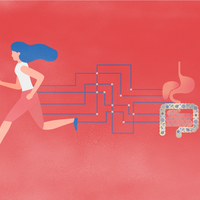Login
Subscribeexercise, cell & molecular biology, disease & medicine

Exercise Changes Our Gut Microbes, But How Isn’t Yet Clear
Ashley Yeager | Aug 15, 2019 | 5 min read
Physical activity, independent of diet, shifts the composition of bacteria in the intestines, spurring researchers to search for species that might provide benefits akin to working out.

The Scientist’s Most Stunning Infographics of 2018
Jef Akst | Dec 21, 2018 | 2 min read
From cellular self-digestion to the effects of exercise on the brain, our features editor picks her favorite art custom-made for the magazine.

Researchers Identify Irisin’s Receptor in Bone and Fat
Carolyn Wilke | Dec 13, 2018 | 3 min read
They hope to develop the “exercise hormone” into therapeutics that harness the benefits of exercise for people unable to do so.

Exercise’s Benefits to Dementia Can Be Made Chemically
Ruth Williams | Sep 6, 2018 | 3 min read
Boosting both neurogenesis and a brain-derived growth factor can mimic the cognitive benefits of exercise in a mouse mode of Alzheimer’s disease.
